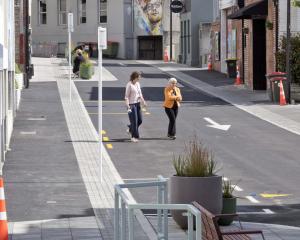The University of Otago is offering a mediation course for the first time as a summer school course, and was surprised when more than 100 students registered for the fourth-year paper, acting marketing co-ordinator (faculty of law) Ruth Molloy said.
The number was much higher than summer school papers normally attract.
Prof White, of the University of Arizona's college of law, who is teaching the six-week course, said the class was so big it was split into four groups, staggered throughout the day.
A high level of individual participation, and emphasis on role play, meant it made sense to have smaller groups.
Prof White said some lawyers in the United States had resisted the trend towards mediation as a way of settling disputes.
An important facet of mediation was that, as a process, it tended to make participants feel more satisfied than with a court room proceeding.
Consequently, disputes were often settled with an apology and no payout, or with a smaller payout, which was apt to be against the monetary interests of lawyers, Prof White said.
People tended to feel more included in the process in a non-confrontational setting with a neutral mediator overseeing proceedings.
Mediation should not be confused with negotiation, he said, as it involved a third party as mediator, rather than lawyers on opposing sides reaching a deal or settlement.
Ms Molloy said mediation was steadily gaining recognition in New Zealand, and the fact the university offered the course reflected its increased use.
It was increasingly popular as a way of avoiding lengthy delays and steep legal fees in the civil law courts.
Asked whether mediators needed specialist legal knowledge in the area of each dispute, Prof White said some mediators chose to specialise in process, while others chose a particular area, such as property law, in which to focus.












